The food waste problem has become more difficult in recent years as a result of seasonal and panic-buying. Food waste avalanches at food waste disposal facilities and biogas plants mean that large quantities go beyond the capability of the existing biogas plant and composting facilities. And, the result is that without the reserve capacity to store this waste and process it later large volumes end up in landfills. Furthermore, the Covid-19 pandemic has highlighted the significance of these food waste peaks.
The Food Waste Problem: Over-Buying During Seasonal Events and Holiday Periods
In normal times, seasonal shopping is one of the leading causes of food waste. For example, many people overbuy vegetables, and salads during the summer months, in anticipation of good weather. When this does not come, the result is a surplus that remains uneaten and becomes waste at short notice. The result is nothing short of a major food waste problem from the ensuing “food waste avalanche” that the waste Management Industry is unable to control.
This surplus frequently ends up in landfills or food waste disposal facilities.
Similarly, panic buying, which became frequent during the pandemic, has only exacerbated the issue of food waste.
Consumers became anxious about rumoured shortages, and purchased more than they required, resulting in a rise in organic garbage that is frequently difficult (and very costly to the ratepayers) to dispose of. It is a big food waste problem and one that there is little or no evidence is being tackled, certainly in the UK.
The Food Waste Problem: The Need for Better More Flexible Organic Waste Management Systems
Implementing a more flexible waste management system, including for example the use of reserve biogas facilities which normally do not accept food waste, is one answer to these difficulties.
Biogas facilities are becoming increasingly popular as a means of converting food waste into energy. The biogas produced can be used to generate energy or fuel, giving a long-term solution to the problem of food waste. Furthermore, these plants should be used as they contribute to lowering the amount of methane emitted into the environment, reducing the impact of greenhouse gas emissions.
Most nations are intent on ceasing the disposal of all organic waste to landfills, and yet the problem of food waste avalanches does not appear to be on anyone's radar. How is it possible to avoid landfilling all organic material when a waste food avalanche hits, unless substantial spare Biogas plant and composting capacity is set up, to cope with it?
Another Covid-19 Pandemic Lesson Not Yet Learnt?
The Covid-19 epidemic has emphasised with great clarity the importance of addressing food waste peaks. Panic buying during the early stages of the epidemic resulted in an increase in food waste as people stocked more food than they required. As a result, food banks and other organisations were inundated with surplus food contributions, and many were forced to dump the excess.
This experience has shown us that we need to create more effective and sustainable waste management solutions. We also need to educate customers about the necessity of eliminating food waste, especially in times of crisis.
Governments can reduce the quantity of food waste that ends up in landfills or biogas plants by making these changes, resulting in a more sustainable future for all.
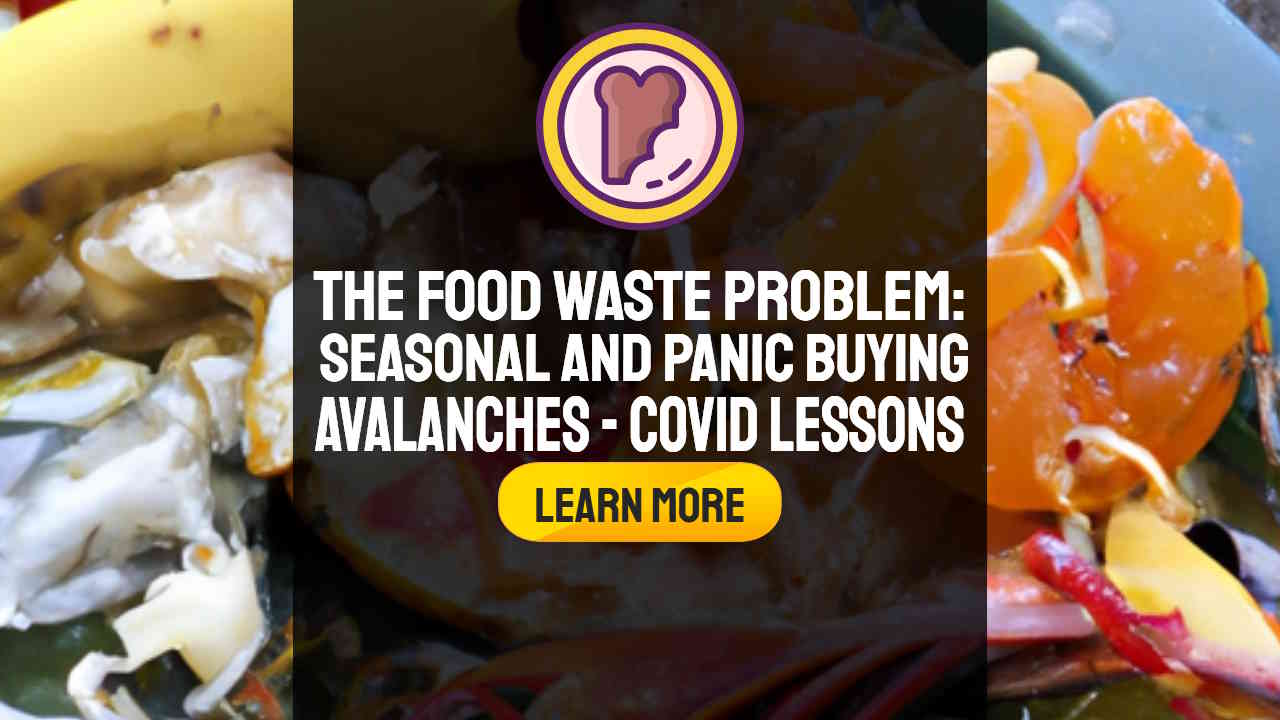
Concluding: The Food Waste Problem That Can't be Brushed Under the Carpet
Seasonal and panic-buying food trash avalanches at food waste disposal facilities and biogas plants are major issues that must be addressed. A two-way action plan, to solve this food waste problem, is needed to ensure that:
- Additional processing capacity is available in the organic waste management system to cope with peak periods.
- The public is made aware of the dire problems caused by over-buying food at all times, but especially in advance of holiday periods.
The Covid-19 outbreak has highlighted the necessity of minimising food waste, and in order to create a more sustainable future, we must develop more effective and sustainable waste management systems.
The original article on this subject was posted in April 2020 (see below) and is an example of the manner in which panic buying of food and hoarding was seen as an issue at the height of the initial Covid pandemic lockdown:
The coronavirus is undoubtedly impacting the volume and characteristics of food waste arriving at Biogas Plants, and one source will be the result of panic buying. However, the scale of the increase in food waste is hard to judge.
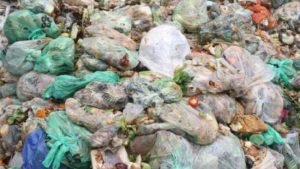 We were interested to read a recent Landia Press Release on waste food (possibly of avalanche proportions) being received as a result of UK panic buying in the weeks before the UK lockdown which officially began on 23 March 2020.
We were interested to read a recent Landia Press Release on waste food (possibly of avalanche proportions) being received as a result of UK panic buying in the weeks before the UK lockdown which officially began on 23 March 2020.
We wondered whether there was really going to be that much waste food arriving at UK biogas plants. The Landia Press Release follows. But first, here is what we found:
The Scale of UK Food Stockpiling Ahead of the UK Coronavirus LockDown
On 21 Mar 2020, the Sun reported that:
“Brits have more than £1 billion worth of food stockpiled in their homes after panic buying over the coronavirus, the country's top retail official said today. Officials told Brits today to stop stockpiling and to think of others after heartbreaking images showed how the elderly and NHS staff were struggling to shop.”
Like many places across the world, the United Kingdom has struggled to keep store shelves stocked as fears over the coronavirus gave way to panic buying. This led many stores to place limits on items, as well as dedicate certain hours to the elderly and healthcare workers.
And now, it appears that much of the food that people bought could be going to waste.
Media News About Stockpiled Food Going to Waste
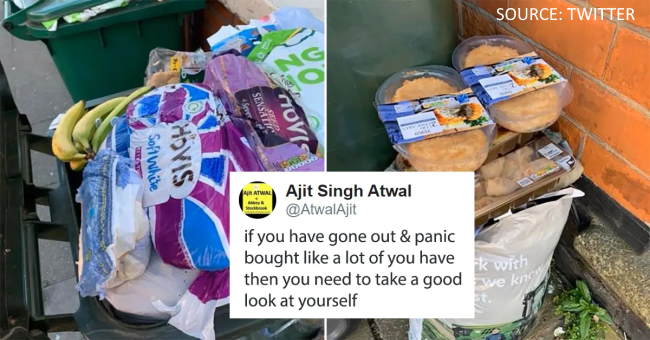
The post has since attracted nearly 5,000 retweets and over 900 comments.
However, as Metro points out, the images don't appear to have been taken in Derby.
“I'm highlighting a countrywide issue – never said they were bins in Derby,”
Atwal told one commenter.
Instead, the Coventry Telegraph seems to believe that the bins belong to international students who had “just hours to leave the city during the chaotic early phases of the global Covid-19 pandemic.” The Telegraph reports that many students were forced to dump their food as they got flights home. via www.distractify.com
Our View on This:
Be your own judge as to the extent of panic stockpiling and how much of that food may be wasted and arrive at biogas plants. However, such food waste will certainly be joined with food waste from other sources, such as unusable catering industry food, due to the disruption of the UK food supply chain.
The previously mentioned Press Release follows:
Landia Press Release (27 Mar 2020)
Biogas/ AD plant equipment to be tested by avalanche of food waste from panic-buying?
AD/ Biogas operators will very soon be looking to their pumps and ancillary equipment for maximum performance – as an avalanche of food waste heads their way.
Panic buying from those scared by Coronavirus is going to see vast volumes of unused food products heading to AD/biogas plants – which might pose problems for those without the best equipment – according to leading pump manufacturer, Landia.
“The industry needs feedstock”,
said Landia’s Howard Burton,
“but as panic buyers begin to regret overloading their supermarket trolleys with too many perishables, the sudden rush of food waste may arrive at AD plants at an even bigger rate than the post-Christmas wave of unwanted goods”.
Burton pointed out that experienced industry operators such as Cannington Bio Energy are always geared up for the huge variances of food waste, but others who perhaps haven’t invested in top quality pumps, may see an adverse effect on their process – potentially with equipment that becomes blocked, or later with digesters that get weighed down with so much packaging waste grit and plastics that biogas yields are adversely affected.
“It’s a tough industry where the learning never stops”,
continued Burton,
“but at this extremely testing time for the world, some AD/Biogas operators who use food waste as feedstock are going to find it very difficult to keep everything as balanced as possible to manage their processes. The torrent of food waste from panic buying isn’t far away”.
He added:
“The Chopper Pump, which Landia invented 70 years ago, is a tried and tested example of equipment that takes massive punishment at AD/Biogas plants, but keeps on working, without blockages. Lesser pumps, which aren’t really suited to the industry may not be able to cope with what’s ahead soon”.
Landia UK +44 (0) 1948 661 200
Press Release Ends
We thought it interesting to consider the very similar food waste problem being experienced in North America, as curated below:
The Effect of the Coronavirus Pandemic on Food Waste in the US
There is no doubt that the coronavirus pandemic is leading the food industry and regulators to change policies as they grapple with empty shelves, a glut of fresh produce and milk, and sudden shifts in consumer buying habits.
The problem isn't a shortage of food and commodities. If anything, food waste is becoming a bigger issue as traditionally big, bulk buyers — like college dorms and restaurant chains — suddenly stop receiving deliveries.
As a result, millions of gallons of milk are being dumped, and farmers have no alternative but to turn fresh vegetables into mulch. via www.politico.com
San Francisco is already seeing more household food waste.
“People are cooking more at home,”
Robert Reed, who works with the city’s waste management company Recology, told Nat Geo.
“Tonnages of food scraps from single-family homes and apartments are up.”
In short, the food industry, like everything in our lives, has been upended by the coronavirus pandemic. And when it comes to perishable items like food, uncertainty can lead to waste. Unfortunately, on a large scale, there’s little most of us can do about it. so, it becomes a rising food waste problem. via www.foodandwine.com
The biggest source of food waste in America is households, where produce wilts, milk spoils, and leftovers lurk at the back of the fridge until they are tossed. Now, anxious consumers who have been hoarding food may discover there's no way they can eat everything they've bought. That's a food waste problem because we can't just store food waste because it rots and that's not healthy.
Says Frank Franciosi, of the U.S. Composting Council,
“We may see municipal curbside collection of food waste go up as more people eat in or take out.”
via www.nationalgeographic.com
[Food Waste Problem Article first published 6 April 2020.]



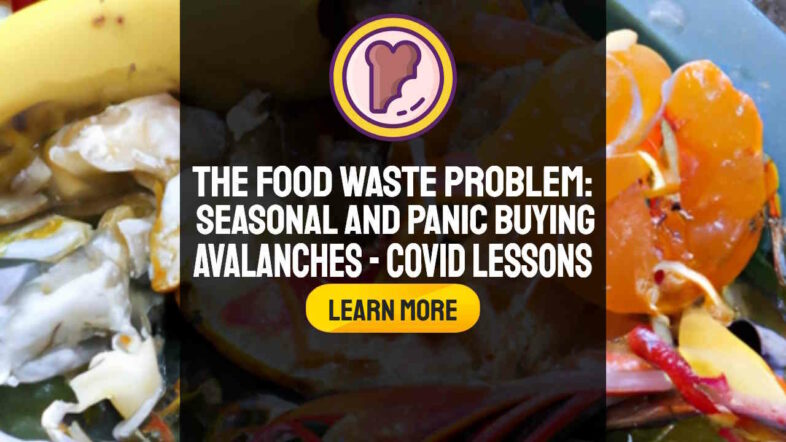

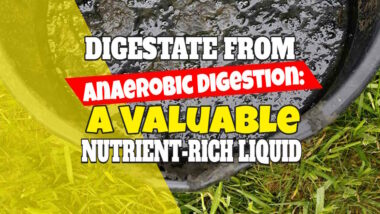


The pandemic has so many negative effects on society. I have been documenting many of these and will also dd this one. Thanks.